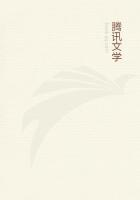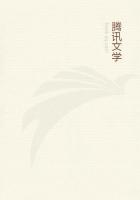But meantime let us return for a moment to my opening remark about the physical effect of some common, hired books. A few of them (not necessarily books of verse) are melodious; the music some others make for you as you read has the disagreeable emphasis of a barrel-organ; the tinkling-cymbals book (it was not written by a humorist) I only met once. But there is infinite variety in the noises books do make. I have now on my shelves a book apparently of the most valuable kind which, before I have read half-a-dozen lines, begins to make a noise like a buzz-saw. I am inconsolable;I shall never, I fear, discover what it is all about, for the buzzing covers the words, and at every try I am absolutely forced to give it up ere the end of the page is reached.
The book, however, which I have found so difficult to define, is by no means noisy. As a mere piece of writing it may be described as being breathless itself and taking the reader's breath away, not by the magnitude of its message but by a sort of anxious volubility in the delivery. The constantly elusive argument and the illustrative quotations go on without a single reflective pause. For this reason alone the reading of that work is a fatiguing process.
The author himself (I use his own words) "suspects" that what he has written "may be theology after all." It may be. It is not my place either to allay or to confirm the author's suspicion of his own work. But I will state its main thesis: "That science regarded in the gross dictates the spirituality of man and strongly implies a spiritual destiny for individual human beings." This means: Existence after Death--that is, Immortality.
To find out its value you must go to the book. But I will observe here that an Immortality liable at any moment to betray itself fatuously by the forcible incantations of Mr. Stead or Professor Crookes is scarcely worth having. Can you imagine anything more squalid than an Immortality at the beck and call of Eusapia Palladino? That woman lives on the top floor of a Neapolitan house, and gets our poor, pitiful, august dead, flesh of our flesh, bone of our bone, spirit of our spirit, who have loved, suffered and died, as we must love, suffer, and die--she gets them to beat tambourines in a corner and protrude shadowy limbs through a curtain. This is particularly horrible, because, if one had to put one's faith in these things one could not even die safely from disgust, as one would long to do.
And to believe that these manifestations, which the author evidently takes for modern miracles, will stay our tottering faith;to believe that the new psychology has, only the other day, discovered man to be a "spiritual mystery," is really carrying humility towards that universal provider, Science, too far.
We moderns have complicated our old perplexities to the point of absurdity; our perplexities older than religion itself. It is not for nothing that for so many centuries the priest, mounting the steps of the altar, murmurs, "Why art thou sad, my soul, and why dost thou trouble me?" Since the day of Creation two veiled figures, Doubt and Melancholy, are pacing endlessly in the sunshine of the world. What humanity needs is not the promise of scientific immortality, but compassionate pity in this life and infinite mercy on the Day of Judgment.
And, for the rest, during this transient hour of our pilgrimage, we may well be content to repeat the Invocation of Sar Peladan. Sar Peladan was an occultist, a seer, a modern magician. He believed in astrology, in the spirits of the air, in elves; he was marvellously and deliciously absurd. Incidentally he wrote some incomprehensible poems and a few pages of harmonious prose, for, you must know, "a magician is nothing else but a great harmonist."Here are some eight lines of the magnificent Invocation. Let me, however, warn you, strictly between ourselves, that my translation is execrable. I am sorry to say I am no magician.
"O Nature, indulgent Mother, forgive! Open your arms to the son, prodigal and weary.
"I have attempted to tear asunder the veil you have hung to conceal from us the pain of life, and I have been wounded by the mystery. .
. . OEdipus, half way to finding the word of the enigma, young Faust, regretting already the ****** life, the life of the heart, Icome back to you repentant, reconciled, O gentle deceiver!"













